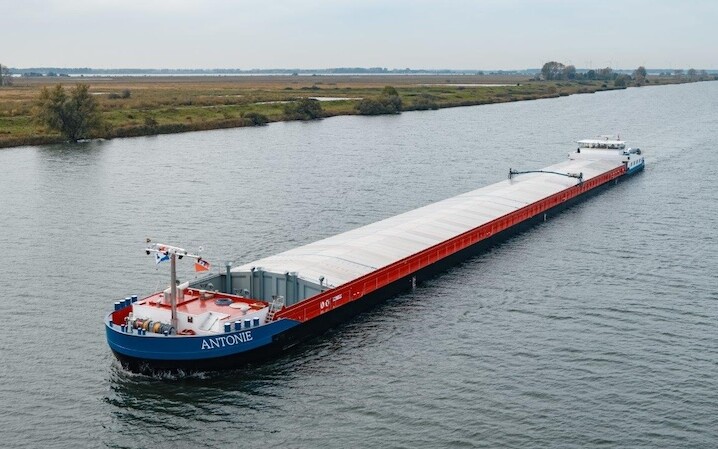The Netherlands’ Lenten Scheepvaart will go down in history as the owner of the world's first-ever newbuild hydrogen-powered inland shipping barge. With this, the shipping company takes an important step towards zero-emission transport on Dutch inland waterways.
The hydrogen electric cargo ship Antonie (WEVA) was built by Concordia Damen Shipbuilding. The technical sea trials were held in late October, during which the ship was inspected by Lloyd's Register and given a provisional certificate to be put into service.
The WEVA project is a joint effort by Concordia Damen Shipbuilding in collaboration with CCM3, Nedstack Fuel Cell Technology, Nobian, Energy TransStore, NRPC and Lenten Scheepvaart, among others. Its delivery has been made possible in part by a grant from the Dutch Ministry of Infrastructure and Water Management.
With the hydrogen containers, expected to arrive by the end of this year, not yet installed on board, full attention could be given to testing the advanced diesel-electric propulsion system.
The dry cargo vessel will transport salt for Nobian, a leader in the production of essential chemicals for various industries in Europe. The company turns salt into chlor-alkali, among other things, with hydrogen as a residual product. The hydrogen produced in the chlor-alkali production process will soon form the clean fuel for the Antonie — a textbook example of a circular chain. With three hydrogen containers on board, Antonie will soon have enough energy available for full zero-emission transport between Delfzijl-Rotterdam-Delfzijl. A hydrogen bunker station has now been built in Delfzijl with a subsidy.




